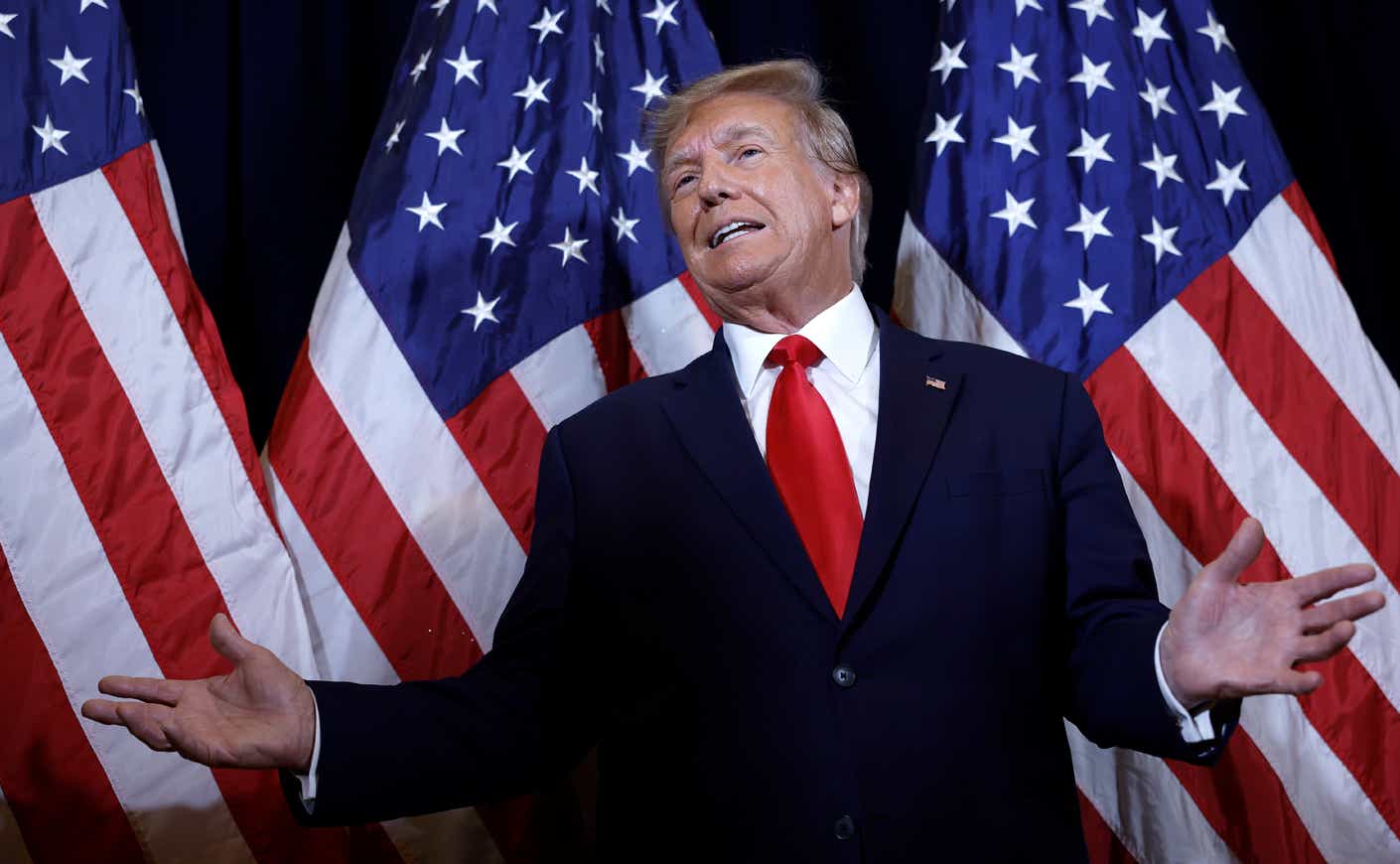Even as a growing section of the GOP questions whether Donald Trump could win in 2024, the former president proved over the weekend that he still has his base’s support. Here’s a look at Trump’s CPAC performance and what it may mean for the future of the party.
The Trump show
The former president capped off this year's Conservative Political Action Conference with a speech that lasted nearly two hours. Trump blasted establishment Republicans and went over his “America First” agenda, which resonated with a crowd composed primarily of his supporters.
“In 2016, I declared I am your voice,” Trump said during his speech. “Today, I add: I am your warrior. I am your justice. And for those who have been wronged and betrayed: I am your retribution.”
Trump also dominated in a straw poll of attendants, winning 62 percent of the vote. Florida Gov. Ron DeSantis came in second with 20 percent, followed by businessman Perry Johnson (5 percent), and Nikki Haley (3 percent). Trump also confirmed to reporters over the weekend that he’s committed to remaining in the race even if indicted for his role in instigating the Jan. 6 attack on the Capitol or for his handling of classified documents.
Not the same CPAC
For years, CPAC has drawn the GOP’s brightest stars and provided a glimpse of where they were steering the party. But this year, the convention was missing some big names. DeSantis, who hasn’t thrown his hat in the ring yet but is still viewed as Trump’s biggest primary threat, and former Vice President Mike Pence, were both absent.
Instead, they opted to attend a donor retreat hosted by the conservative organization Club for Growth. The group supported Trump in his 2020 campaign but has since distanced themselves from the candidate and didn’t invite him to this year’s gathering. The competing events may be representative of a larger ideological rift occurring within the party — between “MAGA” Republicans and those who aren’t quite sure Trump will be able to win the White House. That may be why the straw poll was so skewed in the former president’s favor.
Mega-donors distance themselves from Trump
Club for Growth isn't the only important conservative donor to back away from Trump in the last few months. Americans for Prosperity, another prominent donor group, indicated they would not support Trump in 2024. Other well-known donors, including Ken Griffin, Stephen Schwarzman, and Robert and Rebekah Mercer, have expressed they wouldn't financially back Trump, either.
And it's not just donors who have expressed the desire to leave Trump in 2020. New Hampshire Gov. Chris Sununu told NBC's Meet the Press, "Thank you for your service, we're moving on." He added, "I just don't believe the Republican Party is going to say that the best leadership for America tomorrow is yesterday's leadership." Nikki Haley seemed to hint at the same sentiment when she announced her presidential run, though she stopped well short of formally disavowing Trump. Haley said that it was time for GOP leadership "to move past the stale ideas and faded names of the past." She said to voters, "If you’re tired of losing, put your trust in a new generation."
What the polls say
Some pundits believe that Trump’s base may be eroding. But not necessarily because of his policies, the many criminal investigations he’s involved in, or his implausible election fraud claim — a lie so absurd even Fox News’ hugely influential anchors privately didn’t buy into it. What many conservative voters are concerned about is his electability. A good portion of them don’t like Trump’s chances in a potential rematch against President Biden or another Democratic candidate, the Washington Post reports. And in DeSantis, a politician who’s built a national reputation for himself and who’s assumed many of the same hard-line stances as the 45th president, they’ve found a viable alternative — who may also be able to win more moderates.
That fault line is evident in new polling data. A January poll found that 70 percent of Republican and independents who lean right have a favorable view of Trump. But in a head-to-head, 64 percent preferred DeSantis, compared to Trump’s 36 percent.
However, a more recent survey found that in a field of 14 potential candidates, Trump still leads the pack with 42 percent, while DeSantis trails at 36 percent. Trump's got a larger lead among voters who identify as “very conservative” (Trump gets 53 percent to DeSantis’ 36 percent) but the gap shrinks among “somewhat” conservative Republicans (Trump 41 percent, DeSantis 38 percent). And among college-educated GOP voters, DeSantis is ahead of Trump, 51 percent to 22 percent.
So far, only Nikki Haley and biotech entrepreneur Vivek Ramaswamy have announced their candidacy, though plenty of other candidates are expected to throw their hats in the ring in the coming months.









